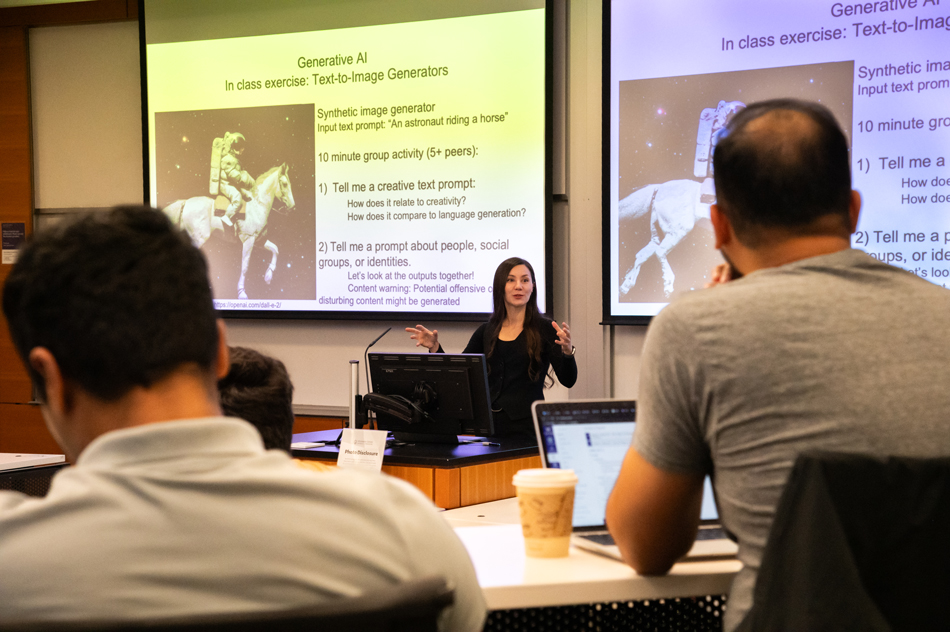Artificial intelligence is disrupting and reshaping organizations around the world, affecting how businesses work, how people perform their jobs, and ultimately the skills in demand from hiring managers charged with attracting talent to lead their organizations into the AI era. These are exactly the type of complex business and organizational problems graduates of the UW Information School’s Master of Science in Information Management (MSIM) program are taught to solve.
“Information management professionals make change by understanding the capabilities and ethical considerations of technology, how organizations work, and how to motivate and support people,” says David Hendry, associate professor and MSIM faculty chair. “An MSIM professional makes other people's jobs better. It's a service orientation, in many ways just like a librarian.”
Fittingly, iSchool leaders are taking an information management approach, embracing advances in technology while focusing on the people it affects, to ensure MSIM graduates remain effective leaders in the age of AI.
This fall, the program introduced a set of elective courses focused on the ethical design and management of AI tools and technologies within organizations. MSIM students can specialize in AI by completing at least three of the five courses on-offer this year:
- Autumn 2024: Generative AI Ethics
- Winter 2025: Epistemological Foundations of AI
- Winter 2025: Implementing & Managing Artificial Intelligence Systems
- Spring 2025: Building and Applying Large Language Models (LLMs)
- Spring 2025: Responsible Artificial Intelligence

Hendry emphasizes that all MSIM students, regardless of their participation in the new AI-focused electives, will learn about artificial intelligence’s capabilities and potential impact on organizations.
“We are continuously changing and keeping our courses up to date with what's happening in society and what's happening in technology,” says Hendry. “Our attention right now is focused on AI, because that is the most important thing that's happening.”
This attention has resulted in new learning outcomes, class readings, projects and tools related to AI, integrated throughout MSIM’s curriculum, and more changes are expected as AI research advances. The iSchool has a number of faculty who are on the leading edge of research on responsible AI systems and experiences. For example, Assistant Professor Aylin Caliskan, who is teaching the MSIM elective on ethical AI this fall, was recently awarded more than $1.6 million to identify, measure and reduce bias in AI.
“We want to be bringing that research into our educational work,” says Hendry. However, this process takes time, and Hendry is quick to point out that iSchool students and partners have emphasized the urgent need for MSIM to offer a path toward AI proficiency.
“AI is just a massive development,” says Hendry. “We have seen tremendous demand from our advisory boards and from our students.”
In the coming months and years, Hendry will collaborate with colleagues to respond to this demand. He will be engaging faculty, staff, students and employers in the development of additional offerings that will teach both the technical and social aspects of AI to students in the MSIM program and beyond.
“We're really looking forward to how students respond to these new electives, and designing new courses and offerings that address this very real need for professional education in artificial intelligence,” says Hendry. “Our goal is to enable professionals across the corporate world, the public sector and nonprofit world to learn about artificial intelligence and bring it into their organizations in a responsible, value-sensitive manner.”
